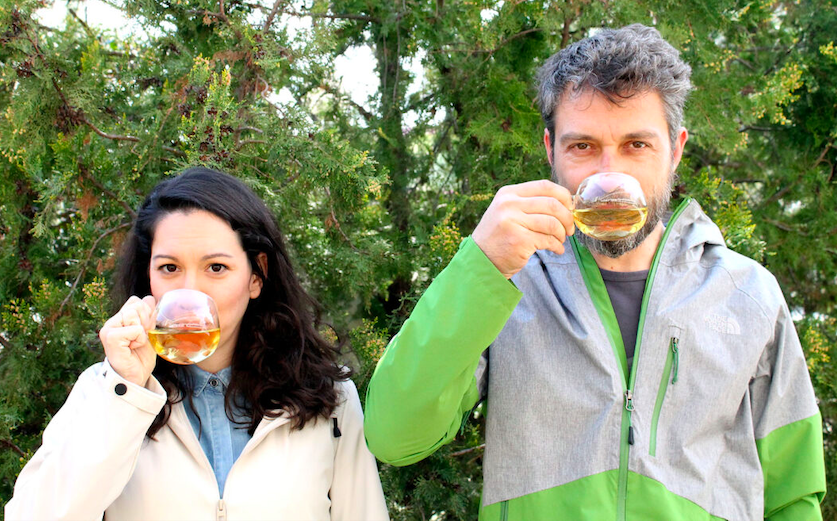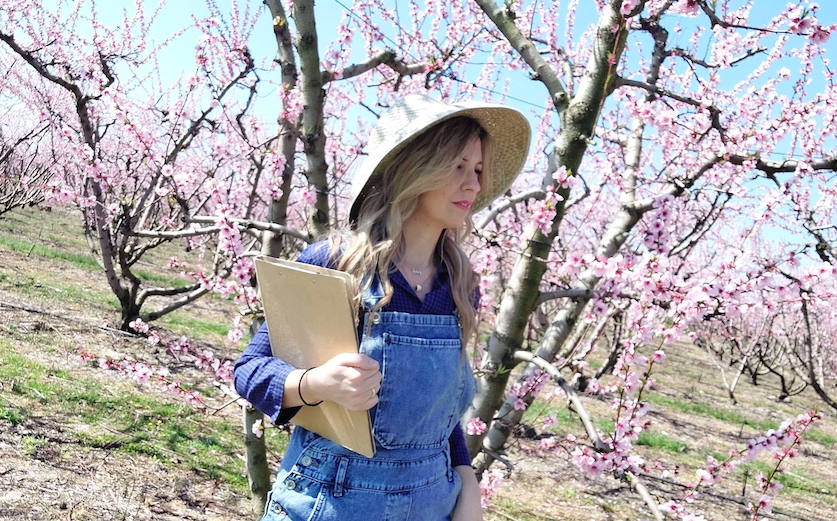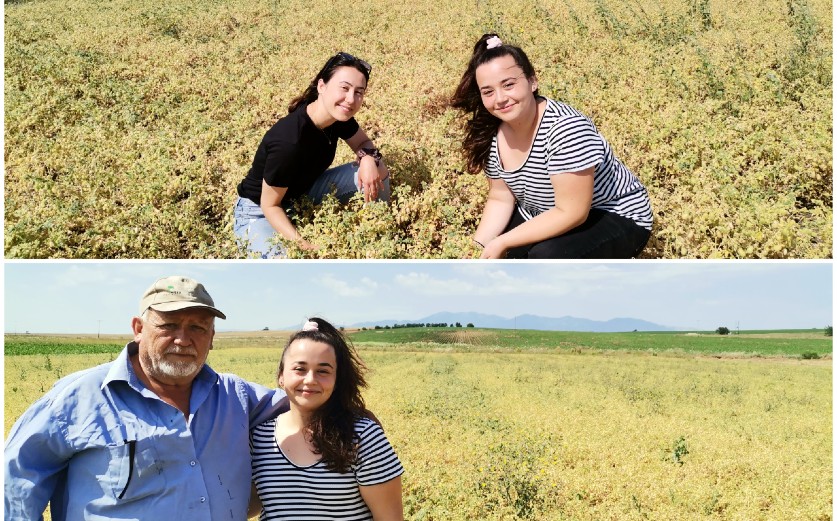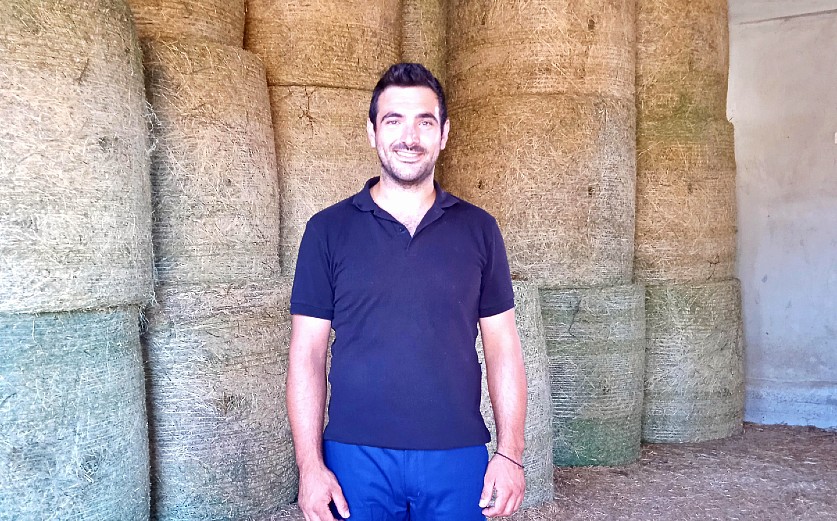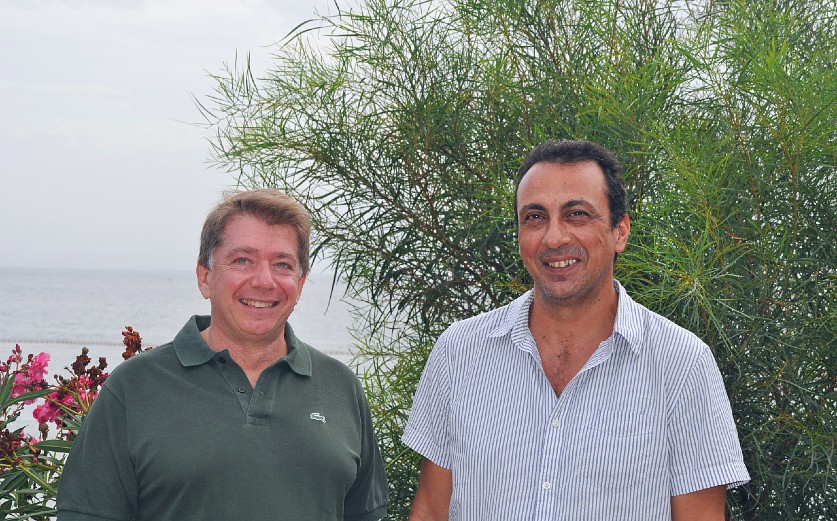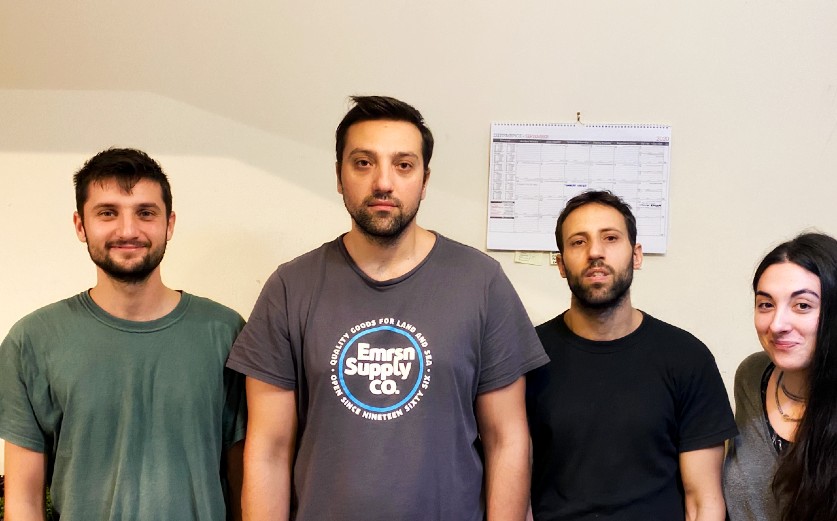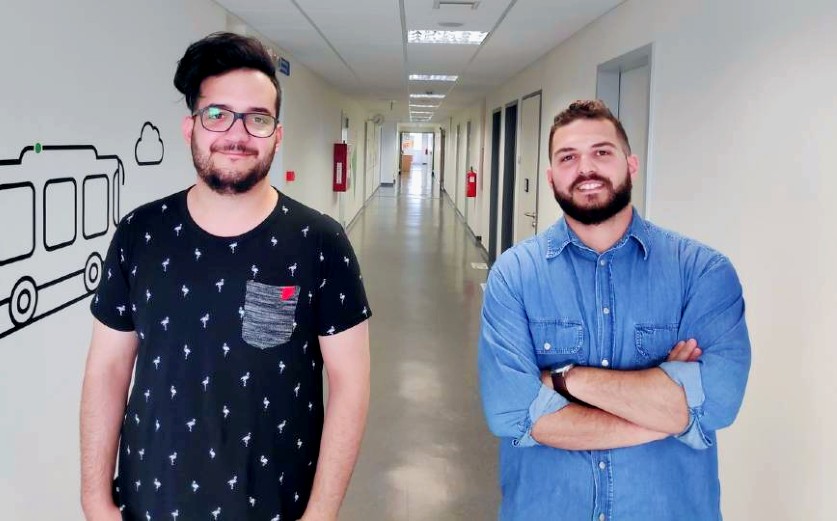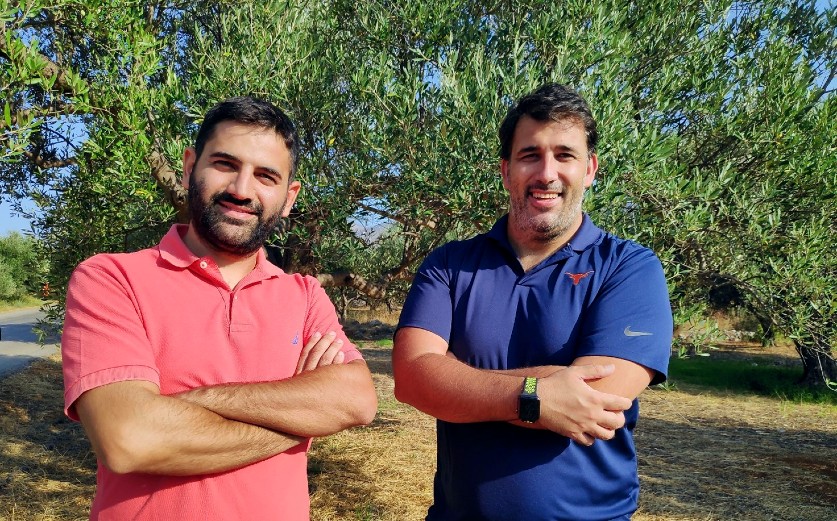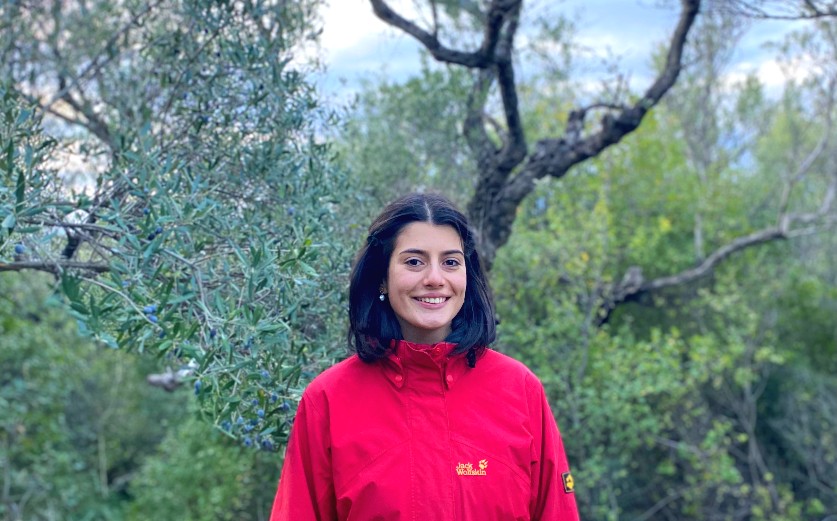Meeting Atallos team, winners of the innovative program “Agroanelixis”
Kostas Belivanis and Giannis Haniotakis where one of the first to understand and invest in the field of smart plant-protection in the agri-food sector. They understood the agricultural needs of Crete and decided to cooperate to create the Atallos project. The team presented an innovative high-tech trap, which is primarily aimed at combating olive flies, and managed to be one of the four winners of the first phase of the “Agroanelixis ” program, which is implemented by the “New Agriculture New Generation” organization.
Talking to Kostas and Giannis, the first thing one can see is their smile and their friendly character. They both origin from beautiful Crete. Kostas comes from Malia area in Crete but was born in Paris and has spent his childhood and adolescence between Greece and France. Giannis, on the other hand, is originally both from Heraklion and Lassithi but he was born and raised in Heraklion. The two met for the first time in Thessaloniki, where they studied. Giannis studied Agriculture and Kostas Civil Engineering, both at the Aristotle University of Thessaloniki. As Kostas characteristically tells me, “Being a Cretan far from Crete, I had a close relationship with the Union of Cretan Students of Thessaloniki. There, I met Giannis. Our shared origin is always something that bounds us. “.
As the years passed however, they both left Greece and continued their studies and their professional careers in foreign countries. Kostas continued his studies at postgraduate and doctoral level in America, in the field of civil engineering, while Giannis, having specialized in the field of beekeeping, went abroad, traveling from Germany to New Zealand, where he worked for several years. Nevertheless, they may have been far away, but they were never estranged.
In 2019, after many years of thinking, they both returned to Crete and so, from February 2020, the idea for the creation of the Atallos project flourished. After all, Giannis has a family tradition in the field of agri-food, as his parents have a small family beekeeping business but are also involved in olive growing. From a young age, as he tells me, he helped his parents, “I was always close to agricultural production. I love it, that’s why I chose to work on it” he says. At the same time, after his return to Crete, in addition to his involvement with beekeeping and olive growing, he worked as a consultant to farmers, producers and cooperatives through different seminars and programs.
Kostas, on the other hand, through his doctorate degree came in touch with programming and with concepts such as that of optimization, machine learning and artificial intelligence, which he fully used both by working as a business risk associate in an international engineering consulting company and then by designing, together with Giannis, the Atallos project.
An innovation in plant protection
The story behind the idea is simple and complex at the same time. In 2019, the olive growing sector in Crete suffered a major disaster. The insect, although small, managed to cause damage to the olives amounting to 120,000,000 € in just a single year. Seeing the magnitude of this catastrophe, Giannis and Kostas thought that the time had come for there to be a way of predicting and warning of similar situations. As Giannis tells me, in theory there is a simple way to measure and prevent. “Imagine that there is a small glass ball that has water inside as well as a special bait for the olive flies. Someone places it in specific areas and after a week, he can count the number of insects and judge whether the area has a problem or not”, explains Giannis.
The problem, however, is that in practice this is not the case while at the same time it is completely based on the human factor with all the uncertainties and failures that it brings. “Kostas and I thought that surely this whole process could be done mechanically. And so, we made an automatic trap, which in addition to the traditional construction that we said before, includes cameras and special computers inside to give the farmer all the necessary information with incredible ease”, says Giannis. As Kostas explains to me, the team counts on a regular basis specific samples (1 trap per 60-80 acres) and they see if the insects that are trapped inside are increasing, decreasing or remain the same. Thus, they can have a picture of the course of olive flies, but also of other insects, in other cultivations.
At the same time, the interested party, whether he is a farmer or a producer, can have in seconds on his computer, his smartphone or even via sms for those who are not so familiar with the technology, the necessary information related to the health of his crop, thus improving its quality and quantity and at the same time, reducing costs.
Their participation in the Agrifood Accelerator “Agroanelixis” of the “New Agriculture New Generation” organization
Both Giannis and Kostas believe that their participation in the “Agroanelixis” program helped them significantly in organizing their idea while at the same time it made them accelerate all the necessary procedures so that the idea could be turned into a product.
Although they say they have long discussed the need to create a “smart” trap, the fact that they both worked in more than one job was certainly holding them back. So, the trap remained just an idea as Kostas tells me, until the first lockdown took place, last March 2020. During a walk, Kostas turned on his cell phone and there, noticed a post on social media about an innovation program. “When I saw it, my first move was to send it to Giannis. “Before I hit the send button on my phone, I realized that at the exact same moment, Giannis had sent me the same thing”, Kostas tells me laughing. “We both thought, this is destined to happen.”
From June 2020, their journey at the “Agroanelixis” program started. The program lasted 4 months and on October 12, 2020, they found themselves among the 4 winners of the innovative program.
“An innovative, but somehow chaotic in its first form idea, found its way through the competition”, Giannis tells me, adding that “we saw that all this could be done, it had perspective. At the same time, we met mentors who gave us a lot of things and still continue to guide us even after the end of the competition and we really thank them for that “.
“We wanted through our idea to solve an existing problem,” says Kostas. “Through the program we were able to organize our ideas and transform them into a product,” he adds. “For example, Mr. Kontaxakis, one of our mentors, helps us organize our thoughts and see our path clearly. All our mentors, such as Mr. Peroulakis who gives us valuable information about how the market is moving and the necessary actions we need to take to grow, are valuable to us. “
As they both mention, the prizes they won from their participation and their win in the “Agroanelixis”, not only the monetary prize but also the mentoring for one year, are for them not only important but also necessary for the development and promotion of their product.
Next day for smart plant protection
The product of the Atallos project clearly shows the necessity for precision farming systems and at the same time, for the reduction of the environmental footprint, both through the reduction of unnecessary transportation made by farmers and through the reduction of unnecessary spraying. Using the Atallos system, sprays can now be very targeted. “Because of climate change, you cannot predict how things will develop each year. The need for early warning producers by using the latest technology, is now crucial “, says Giannis, adding that “Our device has multiple benefits. Economic benefits for the producer, quality benefits for the consumer, commercial benefits for the whole industry but also environmental ones for the protection of the planet “.
Their goal is soon to proceed with a strong market crash test in producer groups and its inclusion in the upcoming improvement plans. “The product is ready; the first devices can be given directly to olive growers. In fact, now, we are examining the pilot use of the product in collaboration with regions that want integrated plant protection “, says Kostas. In the first phase, they aim at individual sales to farmers, producers and cooperatives in the olive growing sector and then, they plan to expand the product to other productions, such as citrus and cherry production. As Giannis states, “We will start from Crete as it can give us a lot of data about the functionality of the product but also because it is a place rich in olives. In our next steps, of course, will be the exports of the product to the rest of Europe “.
Closing our talk, Kostas wanted to emphasize once again the need that has emerged more and more in recent years, to invest in the field of intelligent agriculture. “Unfortunately, the agri-food sector is the last to adopt technology and we have to change that,” he told me. “I believe it is our duty to help cultivate the spirit of adopting the use of technology in agricultural production.”
